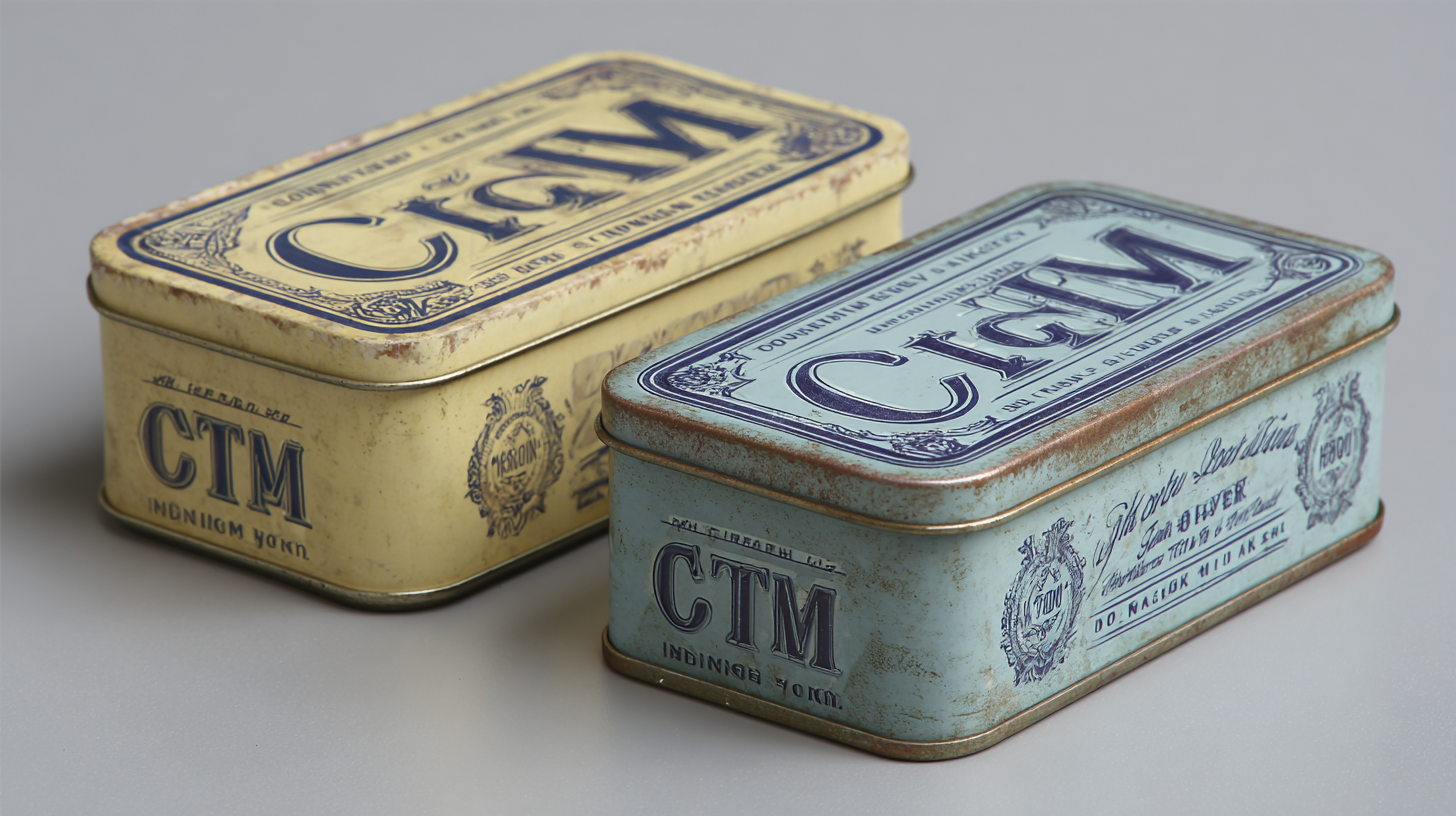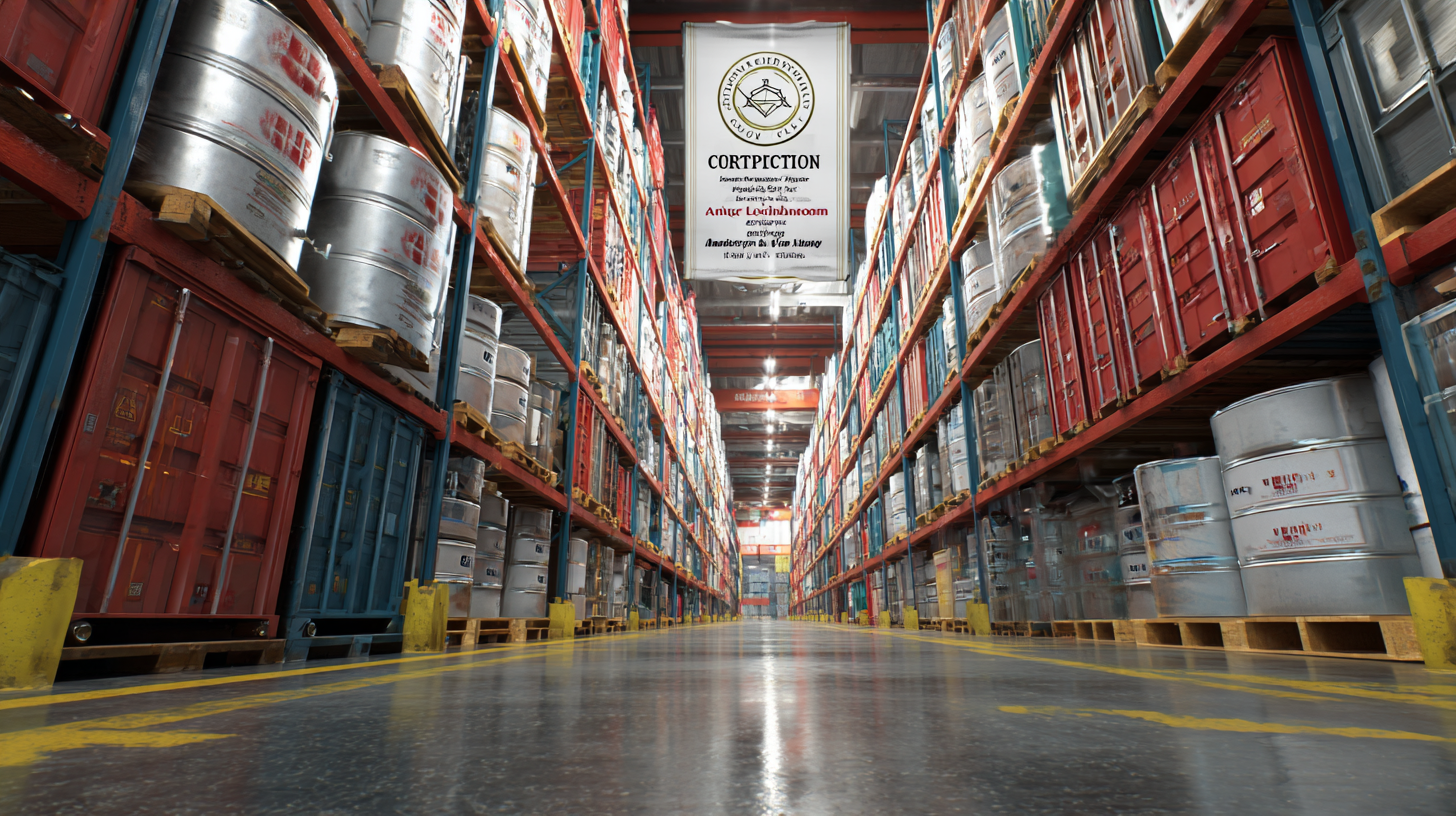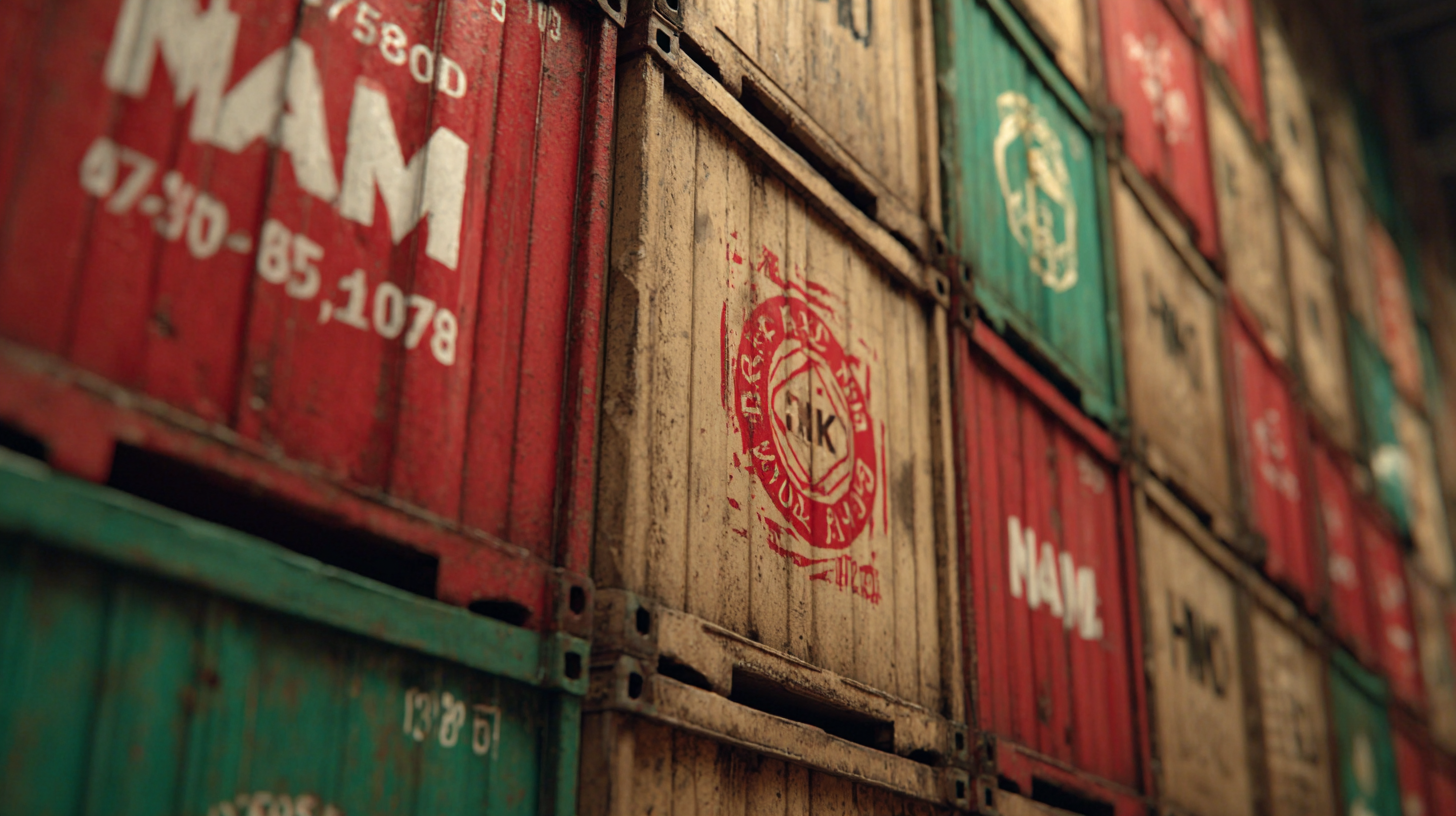 +86-18998410690
+86-18998410690
Leave Your Message
-
 CONTACT NUMBER
CONTACT NUMBER -
 CONTACT NUMBER
CONTACT NUMBER -
 CONTACT NUMBER
CONTACT NUMBER



In the ever-evolving landscape of global commerce, the tin box market is poised to experience remarkable growth driven by innovative technologies and changing consumer preferences. As stakeholders in this industry prepare for the opportunities and challenges ahead, understanding the nuances of import and export certifications becomes crucial for success. Navigating the intricate web of regulations not only ensures compliance but also enhances the competitiveness of businesses operating within the tin box sector.

This blog will explore the 2025 technological trends impacting the tin box industry, offering insights into effective strategies for obtaining necessary certifications while optimizing supply chain efficiencies. By aligning with emerging technologies and best practices, companies can position themselves to thrive in an increasingly competitive market, ultimately catering to the rising demand for high-quality tin box products worldwide.
In the tin box industry, import and export certifications play a pivotal role in facilitating international trade. These certifications ensure that products meet specific regulatory standards and safety requirements, which are crucial for consumer protection and environmental safety. Without the appropriate certifications, manufacturers and exporters may face significant barriers, including customs delays, fines, or even confiscation of goods. Consequently, understanding the processes and requirements for obtaining these certifications is essential for companies aiming to succeed in the global tin box market.
Moreover, certifications can enhance a company's credibility and reputation in the eyes of international buyers. In a competitive marketplace, having recognized import and export certifications can distinguish a brand from its competitors, making it more appealing to potential clients. Additionally, these certifications can lead to increased market access, allowing companies to tap into lucrative markets while ensuring compliance with local laws and standards. As businesses navigate the complexities of international trade, investing time and resources into acquiring the necessary certifications will ultimately contribute to long-term success in the tin box industry.
When entering the tin box market, understanding the key certifications required for successful exporting is crucial. Countries often impose strict regulations to ensure product safety and quality, demanding specific certifications that can vary widely depending on the destination. Common certifications include ISO 9001 for quality management systems, which demonstrates that a manufacturer adheres to international standards in production processes, as well as food safety certifications like FDA approval, if the tin boxes are intended for food storage.

In addition to quality and safety certifications, environmental certifications such as ISO 14001 can enhance a business's reputation while appealing to eco-conscious consumers. This certification focuses on effective environmental management systems, showcasing a commitment to sustainable practices. Additionally, it is essential to be aware of local regulations in target markets, as they may require compliance with specific labeling and packaging standards. By ensuring all necessary certifications are obtained, exporters can facilitate smoother customs processes and increase trust in their products, paving the way for successful market entry.
Navigating the complexities of import regulations for tin boxes can pose significant challenges for businesses in the global market. Recent industry reports indicate that compliance with international trade laws has become more stringent, with 73% of companies citing regulatory hurdles as a major barrier to entry in foreign markets. Specifically, the need for certifications related to safety, environmental standards, and labeling requirements can complicate the process. For instance, the European Union's REACH regulation mandates comprehensive chemical safety evaluations, which can be daunting for manufacturers who lack the necessary expertise.
To mitigate these challenges, companies are increasingly turning to specialized consulting firms that offer tailored guidance on import certifications. A study conducted by the International Trade Centre highlights that businesses that engage with consultants reduce the time spent on regulatory compliance by up to 40%. Moreover, investing in training programs for in-house teams can also enhance understanding of the regulatory landscape, thereby facilitating smoother entry into markets. As the tin box market continues to grow—projected to reach $2.1 billion by 2026—companies must stay proactive in navigating import regulations to capitalize on emerging opportunities.
| Certification Type | Description | Challenges | Solutions | Estimated Time (weeks) |
|---|---|---|---|---|
| ISO 9001 | Quality Management System Certification | Complex documentation and process | Utilize a consultant for guidance | 10-12 |
| CE Marking | Certification for product safety in the EU | Regulatory compliance confusion | Consult with a compliance specialist | 8-10 |
| FDA Approval | Food and Drug Administration Certification for food safety | Lengthy approval process | Prepare detailed submissions in advance | 6-12 |
| RoHS Compliance | Restriction of Hazardous Substances in electrical and electronic equipment | Changing regulations | Stay updated with guidelines | 4-8 |
| SGS Certification | General quality and standards certification | High cost of certification | Budget for certification fees | 10-14 |
In the global tin box trade, quality assurance plays a crucial role in maintaining product integrity and consumer safety. As industries such as food and beverages, pharmaceuticals, and cosmetics increasingly rely on metal packaging, adhering to stringent certifications becomes essential. Effective quality assurance processes not only ensure compliance with international standards but also enhance the reputation of brands in an ever-competitive market. As the metal packaging sector prepares for advancements and regulatory changes, companies must prioritize their quality systems to meet growing consumer demands and environmental sustainability goals.
Recent trends indicate that responsible sourcing of metals is on the rise, with governments, such as Germany’s, setting forth due diligence obligations aimed at creating ethical supply chains. This shift toward sustainability further emphasizes the importance of certification in the tin box industry, as consumers are becoming more aware of the ecological impacts of their purchases. By integrating robust quality assurance practices, businesses can not only navigate complex international trade requirements but also position themselves as leaders in a market that values transparency and responsibility.
As the tin box market continues to thrive in international trade, understanding future trends in certifications and compliance becomes essential for businesses. The growing emphasis on sustainability and consumer safety has prompted regulatory bodies worldwide to enforce stricter certification requirements. Companies must stay ahead by adapting to these changes and ensuring that their products meet not only local but also international standards.
Tip: Regularly review the latest updates from relevant regulatory authorities to ensure compliance with evolving certification standards. Engaging with certification agencies early in the product development process can also facilitate smoother navigation through the certification maze.
Furthermore, digital transformation is playing a crucial role in streamlining trade compliance. Blockchain technology, for instance, is emerging as a powerful tool for enhancing transparency and traceability in the supply chain. By adopting such technologies, tin box manufacturers can provide verifiable proof of compliance, ultimately boosting consumer trust and improving their market position.
Tip: Invest in training and technology that familiarize your team with the latest digital compliance tools. This investment can significantly enhance operational efficiency and ensure that your business can quickly adapt to new certification trends.

